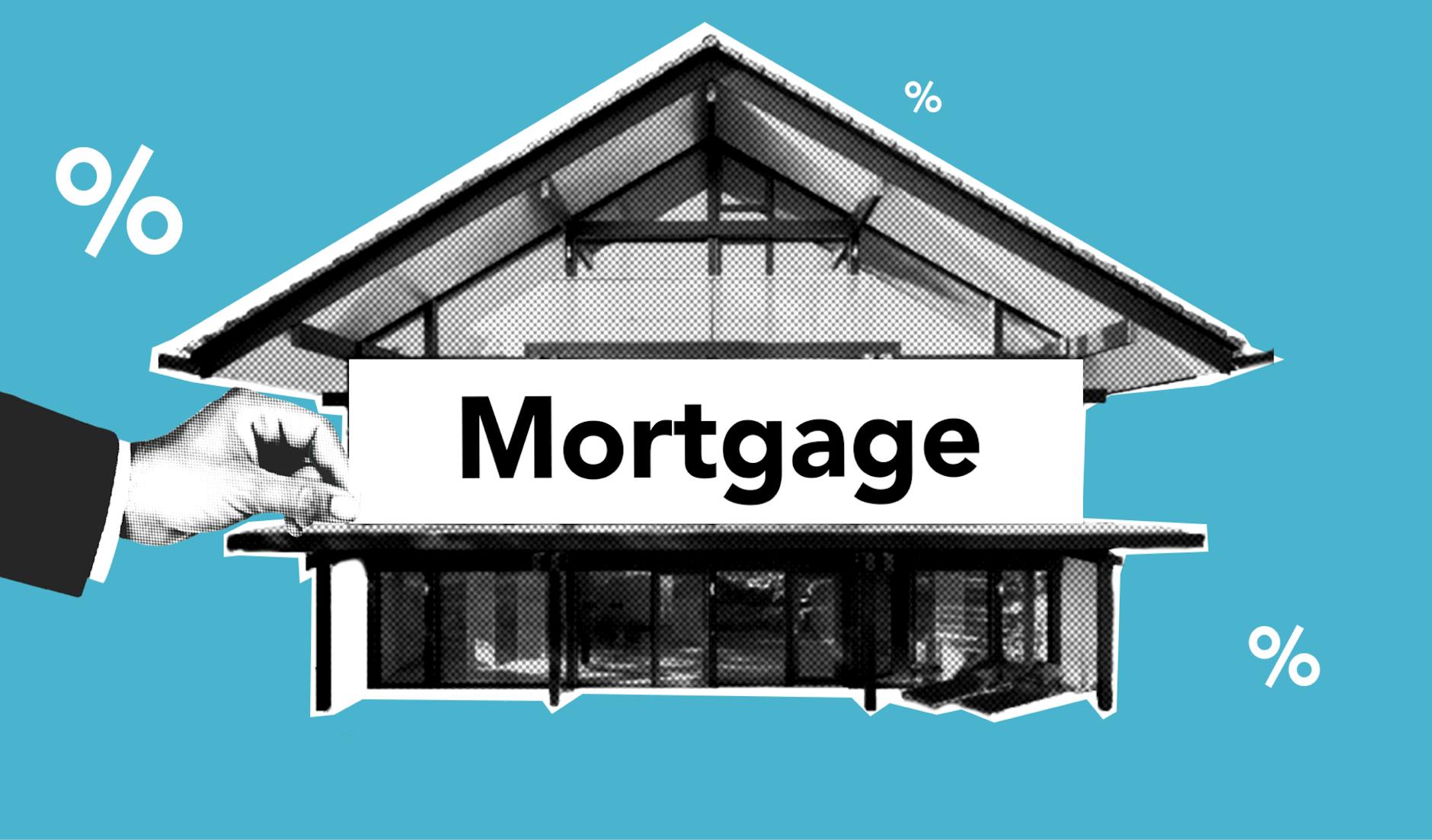Essential Tips for Building Credit When Starting Out
Essential Tips for Building Credit When Starting Out
Building credit is essential for financial health, especially when you're just starting out. A good credit score opens doors to better loan rates, rental opportunities, and even job prospects. If you’re unsure where to begin, don’t worry. This guide will outline effective strategies to help you establish and improve your credit.
You'll learn about practical steps like applying for a secured credit card, becoming an authorized user, and managing bills wisely. Each of these techniques can lay a strong foundation for your credit history. As you read, you'll find that building credit is not only doable but also a key part of securing your financial future.
Understanding Credit
Credit plays a fundamental role in our financial lives. In essence, credit is the ability to borrow money now with the agreement to pay it back later, usually with interest. Whether you need a loan to buy a car or a credit card for everyday purchases, understanding how credit works is essential for building a healthy financial future.
What is Credit?
In simple terms, credit is a tool that allows you to purchase goods or services before you have the money in hand. Think of it like this: when you borrow money, you're using someone else's funds with an agreement to return that money later, often with a fee. Credit isn’t just about loans; it also represents your financial reputation through your credit score. A high score can mean lower interest rates and more borrowing options, while a low score can limit your choices.
For a more in-depth look and examples of what credit is, refer to The Definition of Credit and Why You Need It.
How Credit Affects Financial Decisions
Your credit score can significantly influence various aspects of your financial life, such as:
- Loan Approvals: Lenders check your credit score to decide if they will give you a loan or credit card. A better score often results in better terms.
- Interest Rates: A higher credit score can lead to lower interest rates, meaning you pay less over time.
- Insurance Premiums: Surprisingly, insurers may look at your credit score when calculating your premiums. Better credit could mean lower costs.
- Job Opportunities: Some employers check credit scores during the hiring process, particularly for financial positions, reflecting your reliability.
Understanding these impacts makes it clear why maintaining good credit is crucial. For a deeper dive into how your credit score influences your future, check out How Your Credit Score Impacts Your Financial Future.

Photo by Nitin Arya
Steps to Start Building Credit
Establishing credit is a crucial step in your financial journey. It can seem overwhelming, but breaking it down into manageable steps makes it easier. Here are some straightforward strategies to begin building credit effectively.
Apply for a Secured Credit Card
A secured credit card operates similarly to a regular credit card, but you'll need to make a cash deposit that typically becomes your credit limit. This structure allows you to build credit while reducing the lender's risk. Some great benefits include:
- Easier Approval: Secured cards are generally more accessible for those just getting started or with limited credit history.
- Credit Reporting: Most secured credit cards report to the major credit bureaus. This means responsible use can significantly improve your credit score over time.
- Gradual Upgrades: After a period of responsible use, some banks may allow you to transition to an unsecured card, enhancing your credit options.
For more insights, check out What is a Secured Credit Card and How Does it Work?.

Photo by Monstera Production
Become an Authorized User
Becoming an authorized user on someone else's credit card can be a practical way to start building your credit. It works like this: you get a card issued in your name on an existing account, and the payment history impacts your credit profile. Consider these points:
- Established Credit History: If the primary cardholder has a positive payment history, you may benefit from their established credit.
- Lower Barrier to Entry: You don’t need to apply for your own card. Instead, ask someone you trust, like a family member, if they can add you.
- Shared Responsibility: Note that while you can use the card, the primary account holder is responsible for payments. Ensure you’re added to a well-managed account to protect your credit score.
Learn more about this option in Credit Card Authorized User: What You Need to Know.
Open a Credit-Builder Loan
A credit-builder loan is designed for those looking to build credit without the complexities of traditional loans. Here’s how it typically works:
- Deposit Before Borrowing: You make fixed monthly payments that are saved in a secured account. After a set term, you get access to the funds, and your responsible payments enhance your credit profile.
- Small Amounts: These loans often range from $300 to $1,000, making it an affordable option for many.
- Positive Payment Reporting: Lenders report your payments to credit bureaus, allowing you to build a credit score over time.
To understand this loan better, refer to What Is a Credit-Builder Loan?.
Get a Joint Account or Co-Signer
Sharing a credit account can drastically boost your ability to build credit. Here's how each option works:
- Joint Account: You open an account together, sharing both responsibility and benefits. Both users’ credit scores impact the account, and it reflects as a joint effort. This can help improve your credit score if managed well.
- Co-Signer: If you're applying for a loan with a co-signer, their credit score and history play a role in your approval odds. This option can sometimes secure better interest rates and payment terms as well.
Both methods can offer a helpful push in establishing or improving your credit score. For a deep dive into this topic, check Joint account vs authorized user vs co-signer.
Managing Your Credit Responsibly
Managing your credit responsibly is a cornerstone of building and maintaining a solid credit score. It's about more than just borrowing; it's about creating a credit profile that demonstrates reliability to lenders, insurers, and even employers. Here are some essential elements to focus on:
Make Payments on Time
Your payment history is the most significant factor in your credit score. It accounts for about 35% of your total score, making it essential to stay on track. Late payments can haunt your credit report for years, dragging your score down even if you make later payments promptly. Think of it like a student’s grades; consistent effort leads to better performance.
To maintain a good payment history, consider setting up automatic payments or reminders. Even small bills can affect your credit if not paid on time. Checking resources like How Payment History Impacts Your Credit Score can offer insights into how your payment patterns keep your credit healthy.
Keep Credit Utilization Low
Credit utilization is the ratio of your credit card balances to your total credit limit, and it impacts your credit score significantly. Keeping this ratio low—preferably under 30%—is a great way to demonstrate that you can manage your credit responsibly. High utilization signals to lenders that you may be overextending yourself financially.
To manage your credit utilization, keep these strategies in mind:
- Pay down existing balances to lower your utilization.
- Request credit limit increases, which can also help lower your ratio.
- Avoid making large purchases that will spike your utilization at once.
For detailed tips, visit What is the Best Credit Utilization Ratio?, and adopt good practices for optimal credit health.
Monitor Your Credit Report
Regularly checking your credit report is crucial for ensuring accuracy and catching any potential errors. You're entitled to a free copy of your credit report from each of the major bureaus once a year. This is your opportunity to check for mistakes that could be harming your score.
Consider the following steps for effective credit monitoring:
- Use AnnualCreditReport.com to get free reports from the three major credit bureaus.
- Look for discrepancies, such as incorrect late payments or unfamiliar accounts.
- Report any inaccuracies immediately to resolve them and keep your credit score intact.
For guidance on the credit report process, refer to Learn about your credit report and how to get a copy.

Photo by Mikhail Nilov
Other Ways to Build Credit
Building your credit score doesn't have to hinge solely on traditional methods. You can use other creative avenues as well. Exploring these options may enable you to enhance your credit profile more quickly.
Paying Bills that Report to Credit Bureaus
Did you know that some services allow your everyday bill payments to contribute to your credit score? This can be incredibly useful for those starting with no credit. Companies like Experian Boost let you add on-time utility, phone, or rent payments to your credit history. This means that your responsible bill payments can aid in improving your score.
Consider these options:
-
Experian Boost: This free feature from Experian helps elevate your credit score average by adding payments for services like utilities to your credit report. Regularly paying your electric or water bill on time can positively impact your financial reputation.
Learn more at How Utility Bills Can Boost Your Credit Score. -
Rent Reporting Services: Services exist that allow landlords to report rent payments to credit bureaus. If your landlord participates, this can show consistent responsible payments on your credit file, helping you establish a history. More information is available in How to Add Rent and Utilities to Your Credit Report.

Photo by cottonbro studio
Using a Subscription Service for Credit Building
You can also take advantage of various applications and services arriving on the market meant specifically to help users build credit through existing routines. Here are a couple of options worth considering:
-
Credit-Building Apps: Apps like Grow Credit provide newcomers with a unique opportunity to build credit through the subscription payments you’re already making. For instance, they allow you to get a debit card linked to regular payments like Netflix or Spotify, reporting these to the bureaus as you pay. Get a closer look at how this works from Best Credit Building Apps November 2024.
-
Self-Lender: With this app, you can build credit while saving money. You pay into a loan, and as you make regular payments, those payments get reported to credit bureaus, enhancing your credit profile. Explore more about this app at Self - Credit Builder.
These services not only automate your credit-building efforts but do so in a way that fits easily into your monthly budget. Why not take advantage of technology to improve your financial future?
Common Mistakes to Avoid When Building Credit
Starting to build credit is commendable, but many new credit users trip up along the way. Being aware of these common mistakes can significantly enhance your credit-building journey. Let’s highlight a couple of key pitfalls to avoid.
Overusing Credit Cards
It's easy to fall into the trap of maxing out credit cards as you begin to build credit. While it may feel good to have access to spending power, high balances can harm your credit score. Why is this a problem?
- High Utilization Rate: When you use a large portion of your available credit, it reflects poorly on your credit report. Credit utilization is one of the critical factors in credit scoring, and staying ideal under 30% is advisable.
- Risk of Over-debt: Maxing out cards may lead you down a slippery slope into unmanageable debt. It can also make it harder to pay off your entire balance, leading you to incur interest and penalties.
To learn more, consider reading about the implications of high credit utilization in 8 Common Credit Mistakes and How to Avoid Them.
Ignoring Credit Reports
Another grave error is neglecting to review your credit reports regularly. Your credit report holds essential details about your credit history and scores. Not paying attention to it can cost you in various ways.
- Catching Errors: Credit reports aren't always perfect. Small mistakes, such as incorrect late payments, can significantly impact your credit score. Regular reviews allow you to spot and rectify these issues promptly.
- Understanding Your Profile: Familiarity with your credit report helps you understand your financial standing. Testing your knowledge of what's reported can guide your future credit decisions, whether you seek loans or credit cards.
Often, checking your credit reports is free and easy. Just go to Why You Should Review Your Credit Report Regularly for more details on the process and its benefits.

Photo by Rivacorp
Conclusion
Building credit is a journey that involves understanding key factors and taking deliberate steps. The importance of starting on the right foot cannot be emphasized enough, since a solid credit score can have far-reaching effects on your financial future. Following the appropriate strategies equips you with the tools for a flourishing credit history and opens doors to multiple opportunities.
The Importance of Timely Payments
Making payments on time is arguably the most critical component. Since payment history makes up about 35% of your credit score, every timely payment counts. Think of it as nurturing a garden; consistent care leads to blooming flowers—your great credit score. Setting up automatic payments or reminders can help ensure that you never miss a due date. For strategies to enhance your payment history, check out How to Build Credit With and Without a Credit Card.
Maintaining Low Credit Utilization
Keeping your credit utilization low is essential in demonstrating financial responsibility. Remember, it's not just about having credit available; it's about how much of it you use. Aim for under 30% of your available credit for optimal results. If you need ideas on managing your utilization, see Five Best Ways to Build Credit.
Regular Credit Monitoring
Finally, consistently monitoring your credit report is vital. With free access available annually through sites like AnnualCreditReport.com, staying informed about your credit health helps you catch mistakes early. The ability to rectify any inaccuracies can save you from hiccups down the line. For more detailed insights, visit 8 Tips for Building Credit – For the Beginner.

Photo by Plush Design Studio


